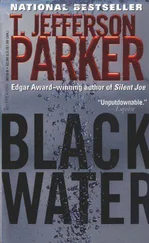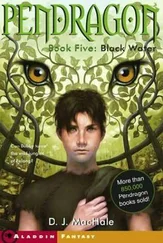Ah , free information. That was why the man had brought a bottle of whisky, a gesture from one chum to another.
‘Well, let’s just hope that whatever the outcome is, it leads to improved stability for the Indonesian people,’ Harper said, in a tone formal enough to indicate that he had no intention of giving anything for nothing. If this man wanted a report, his company could pay for it.
The Englishman groaned. ‘C’mon Harper, you’re an experienced man, don’t go sentimental on me, I have decisions to make. You like fishing?’
He’s more drunk than I realised, Harper thought. Ten minutes of politeness, no more, then he would have to lever him out of the door. ‘Yes, don’t get much time for it, but yes.’ He had never fished in his life.
‘Well, you have a bag of big fish, I don’t know, some large trout or something, and there’s one fish you want to let go, maybe it’s small or sickly, but even so, you’re hardly going to make a hole in your net, are you? Next thing you know, all the damn fish are going to wriggle out of it.’
‘I’m not sure I follow you.’
‘Well, the big man is hardly going to let the protestors have their way. You’ve heard Kopassus is involved?’
‘What makes you think that?’
‘Oh c’mon, Harper, there’s a few too many “students” with military haircuts milling round, don’t you think?’
The Englishman suddenly bent forward and clapped his hands on his knees. ‘Right! Right you are!’ as if he was replying to something Harper had said, rather than just agreeing with himself, as if he had got the information he came for. He stood, a little unsteadily, his centre of gravity shifting over one foot so that he tipped into a slight diagonal before righting himself. He turned, and Harper thought, great, but instead of heading for the door, the Englishman wheeled round to the wall to face the faded map and stood there, waving his glass at it.
‘It looks as if God just took a few rocks and a load of pebbles and went. .’ The Englishman made a sweeping gesture with the glass. ‘But beautiful. A whole country made of islands. Fifteen thousand. . can’t exactly. . push them all. . together I mean.’ He turned to Harper and gestured with his hands, holding both palms apart then pushing the air between them, as if Harper was personally responsible for making sure that the islands of the archipelago did not drift apart in different directions, floating off irresponsibly to join other continents. His tone was a little accusatory. ‘How do you expect to hold it all together?’
It was seventeen thousand islands, actually. Harper wasn’t sure if the man was just stupendously drunk or discovering his mystical side. He must hide his drinking from his firm back home — not hard to do when you were thousands of miles away — but even British firms were getting better at sacking drunks these days. Harper made a mental note, just in case the information should prove useful. He would have to check what the man’s name was when he was gone, what relationship, if any, Harper’s firm still had with his.
‘I thought God had abandoned me back then. .’ the man mumbled, looking down into his glass, ‘. . they believe in so much here, you know, sure not what we believe but at least. .’
Next he was going to start telling Harper how Timor was created by two small boys and a crocodile.
Instead, the Englishman took a vicious swig of whisky, turned and glared at Harper, his voice becoming harsh. ‘Now the great Soeharto, Sustainer of the Universe, is on his way out, they are all at it.’ He coughed heartily. ‘Face it, Harper, these people just like killing each other.’
It occurred to Harper to remark that, in actual fact, they weren’t killing each other, not really. The people being burned alive in shopping malls in the north of the city weren’t burning anyone back. When an elderly woman got lynched for being a witch in East Java, she didn’t lynch another person in return. This was the way killing worked: there were perpetrators, and there were victims. It wasn’t a two-way process.
‘You think he is on the way out?’ Harper asked politely. ‘Then who is giving Kopassus their orders?’
The man looked down. ‘No you’re right, he’ll never go, not without a fight anyway, not without a few more thousand bodies piling up in the streets.’
Harper stood up. The man’s voice had lost its energy. Harper needed to get him out of the office before he sat down again otherwise they might never get him up. ‘I have to agree with you there,’ he said, moving to the man’s side and gently placing one hand beneath his elbow, to edge him towards the door.
‘You think so, really?’ the man said, looking at Harper earnestly. He looked down again. ‘You’re the expert. Well, thanks for the drink.’ He put his glass down then unbuttoned his jacket and used both hands to hitch his trousers before buttoning his jacket again.
Harper got the man to the corridor and administered a small shove. The man paused, swayed, then gave a farewell salute by touching his own forehead and flicking his hand upwards.
Back in the office, Harper raised his eyebrows at Amber. She was on the phone and mouthed, ‘Sorry’ over the receiver.
Harper went to his own office, sat behind his desk, unlocked his drawer and took out his large notepad and a pencil. Even a drunk Englishman could see President Soeharto was never going to go of his own accord. He leaned forward in his chair, over the notepad, but when he put the sharpened pencil to the pad, the point snapped off. Suddenly, his breath was short in his chest. He sat in the chair, staring at the pencil, and realised he had pressed it down on the pad with such force that his hand was shaking. He put the pencil down, carefully, then gripped his shuddering right arm with his left hand. He squeezed lightly. That only seemed to make the shaking worse. He relinquished his own arm, then leaned back in his seat, closed his eyes and made himself breathe deeply. . one, two, three, in. . one, two, three, out. . His left leg was shaking too, juddering beneath the table.
Henrikson was absent all day, a fact that Harper was grateful for. Outside, a three-hour downpour saturated the city but when it lifted Harper went into Wahid’s office and said he was going to get a car to take him round some of the bars, just have a drink in each, see which expat communities were still around, talk to a few people. People became loquacious at a time like this — that much he certainly remembered from ’65, they closed ranks but amongst those ranks, they talked. At least, he told himself that was why he was doing it.
Wahid looked at him and Harper saw concern behind the man’s small round glasses. ‘Is that a good idea?’
Harper shrugged. ‘Well, we’ve been sitting in the office for days while Henrikson runs around the city like he’s James Bond.’
‘Going to check with him first?’
‘Of course not. If he asks where I am, say I tried to call him and couldn’t get through.’
He was woken by the bleep of his pager. Shit , he thought, reeling in bed, his hand outstretched, simultaneously registering that it was bright daylight at the edge of his blinds. What time was it? The apartment seemed unnaturally quiet. Normally, the traffic noise from outside was a blur of sound. Even though he was only half awake as his hand scrabbled amongst the keys, phone, water bottle and tissues on his bedside table, he knew that the streets outside were deserted. He hadn’t a clue where he was, though, or what time it was. Then he thought, the apartment . But how come it was so bright? Oh, he hadn’t closed the blinds when he got in last night.
Last night?
The pager had gone silent. He sat up and looked around. It wasn’t on his bedside table. Damn, he couldn’t afford to miss an emergency. Then it bleeped again and he located it on the floor. His trousers lay in a crumpled heap next to the bed — the pager must have fallen out of a pocket. Call Motorola . He called the office message system but instead of Henrikson or Wahid there was a female voice he didn’t recognise. ‘Hi, it’s Alison from the FT , hey, thanks for the mojitos, give me a call when you’re awake, super-discreet as promised. Ciao , buddy!’ The last two words were said with a friendly flourish.
Читать дальше












